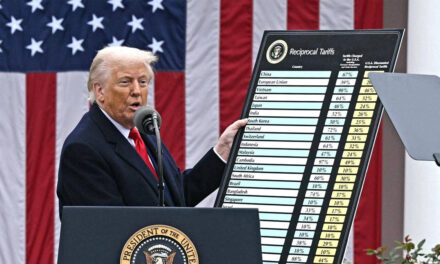
China Opens Stock Markets to Attract Foreign Money – But Nobody Cares!
China has opened its stock markets to the rest of the world in a desperate effort to save its struggling currency, but the world doesn’t seem interested.
The Chinese yuan is badly manipulated, and a political move to change the exchange rates could wipe out a lot of money.
Exchange rates in countries like the US move slowly, giving investors time to back out if they sense trouble. But Chinese rates fluctuate drastically according to the whims of politicians, and investing in such a climate carries a high risk.
I don’t know what China expected to happen when it opened the Shenzhen Stock Exchange (SZSE) to overseas investors in early December, but all they have earned so far is a small trickle of foreign money.
During the first week markets were open, net investment in the SZSE barely reached 20% of the daily 13 billion yuan cap on stock purchases.
“That’s dashed hopes for a surge in foreign investment to counteract persistent capital outflows from China, which have seen the yuan drop 6.3% against the dollar this year,” reports the Wall Street Journal.
The People’s Bank of China has used up nearly $950 billion in foreign exchange reserves since 2014, and the nation’s stock markets are still struggling from a stunning boom and bust in 2015.
Beijing hopes foreign capital will help stabilize stock markets, and the recent opening increases the chances that index providers like JP Morgan and MSCI will include China in their global equity and bond benchmarks – a move that could attract billions of dollars in capital.
JC Sambor of BNP Paribas Investment Partners predicts the Chinese bond market would have to wait until late next year (or later) for this to happen. “All the stars will be aligned in one year,” he said.
The only Chinese stocks to currently appear in MSCI’s key benchmarks are those listed offshore (mainly in the US and Hong Kong), and MSCI has thrice refused to include A-shares since 2014.
“With the [Shenzhen] Connect, we’re another step closer to MSCI inclusion in the emerging market index,” says Nicole Yuen of Credit Suisse.
The Chinese government is also trying to attract foreign capital through the opening of its interbank bond market – where foreign buying is unrestricted – but few have taken the bait.
Most debt managers lack a full understanding of the onshore bond market, where prices are skewed by local investors’ assumption that debts carry inherent government guarantees, and finding accurate data requires the use of Wind Information (the Chinese counterpart of our Bloomberg terminals), a system that operates mainly in Chinese.
“It won’t be easy for global emerging-market managers” to trade this market, notes Sambor.
In terms of Chinese bonds, foreign holdings have increased by about 193 billion yuan since January. This is paltry when you take into account the size of the Chinese bond market and its outstanding debt of over 63 trillion yuan (9 trillion USD).
“It’s also done little to halt a sell-off in the past month, which saw yields on 10-year Chinese government bonds hit the highest level in more than a year last week,” reports the WSJ. “Meanwhile, the extra yield demanded by investors on corporate bonds over government debt rose to the highest level in almost 18 months.”
Even so, a slow launch for bond trading and SZSE stocks might be what China wants. A similar trading deal with the SZSE in 2014 ended with a tremendous crash, and regulators could be hoping for a steadier pace this time.


























Adam Smith never imagined his economics would become so misunderstood, misinterpreted, and reduced to Junk Economics by those who claim…
Blink again and Trump is reversing on himself on his tariff fiasco. He goes nuts with the amount of worldwide…
Trump has arrested development syndrome stuck in the 19th Century. His wishes to be a dictator colonialist land baron.This is…
Once again, Seth do spew that doo doo that he do so well starting with spelling my name wrong so…
He arose to belittle our country while still trying to be Spartacus Not gonna happen. Maybe you libturds can get…